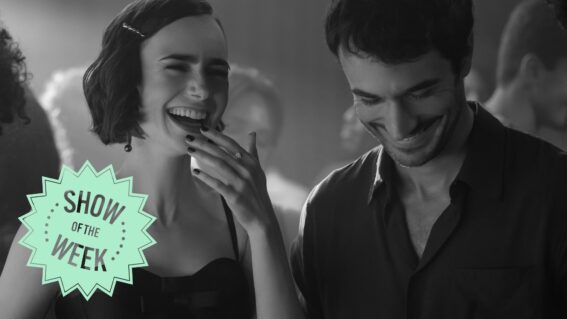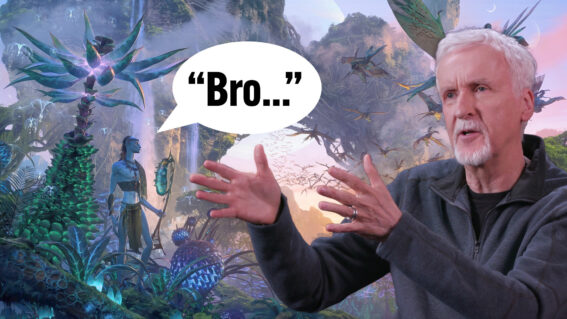Lena Dunham’s romcom Too Much: Less raw than Girls, more affectionate and forgiving
Hacks standout Megan Stalter is a fictionalised avatar for Dunham, who’s more interested here in building a heroine than taking her apart.
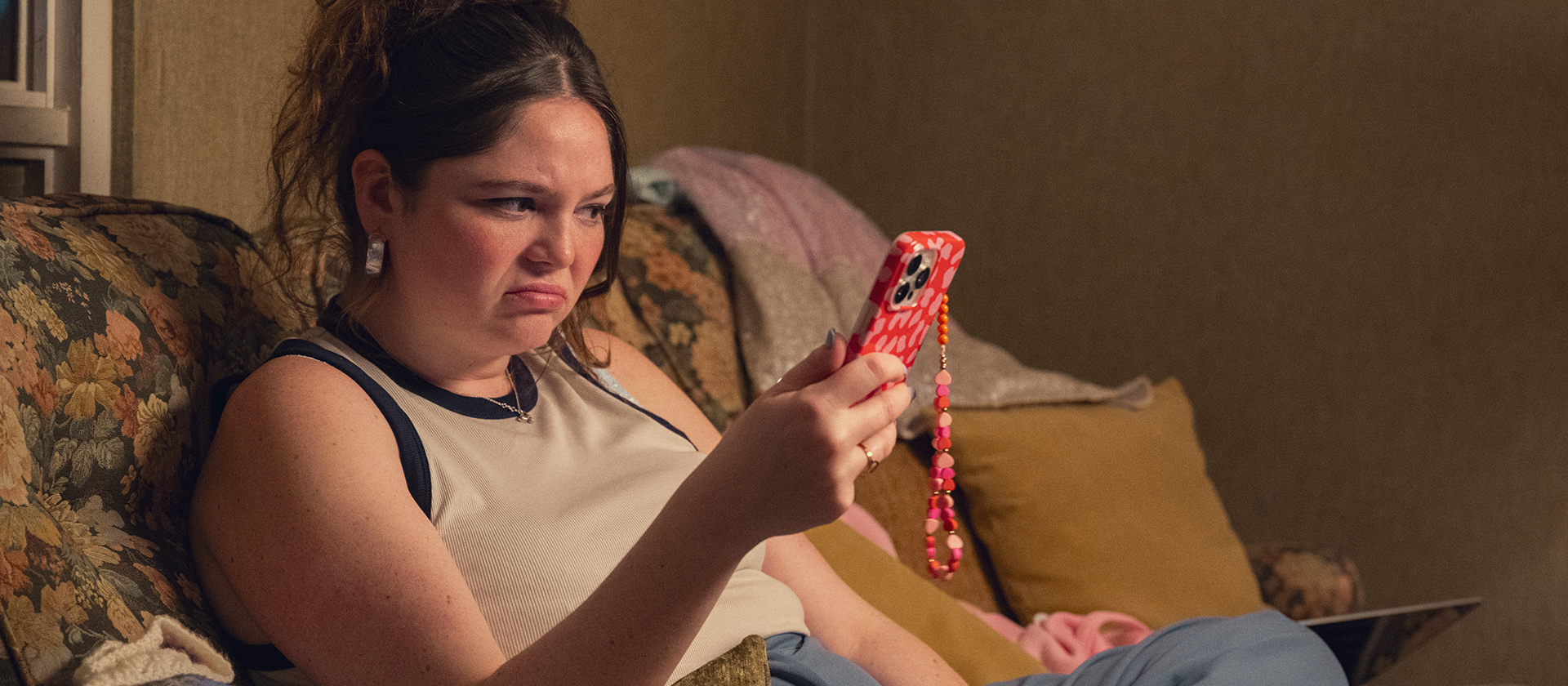
It doesn’t really matter if you liked HBO’s Girls or not. As a flagellation of the millennial soul, in all its vulnerability and its narcissism, but even as a damningly blinkered view of that same existence, it proved a defining moment in our culture. In a thousand years time, if archaeologists and the human species still exist, I hope they’ll somehow still have access to all six seasons and 62 episodes.
It’ll save them a hell of a lot of time trying to figure out how we lived, fucked, and thought in the early 2010s, or what was valued most and what was deemed dispensable.
Can I say the same of Lena Dunham’s spiritual follow-up, Netflix’s Too Much? It’s as intertwined in autobiography. She’s not playing the lead anymore (as she did in Girls, in the role of wannabe writer Hannah Horvath), having cast Hacks standout Megan Stalter as Jessica. Yet, the character’s still a (slightly younger) heavily fictionalised avatar for Dunham, representing the period when she moved to London and fell in love with her now-husband and series co-creator, musician Luis Felber.
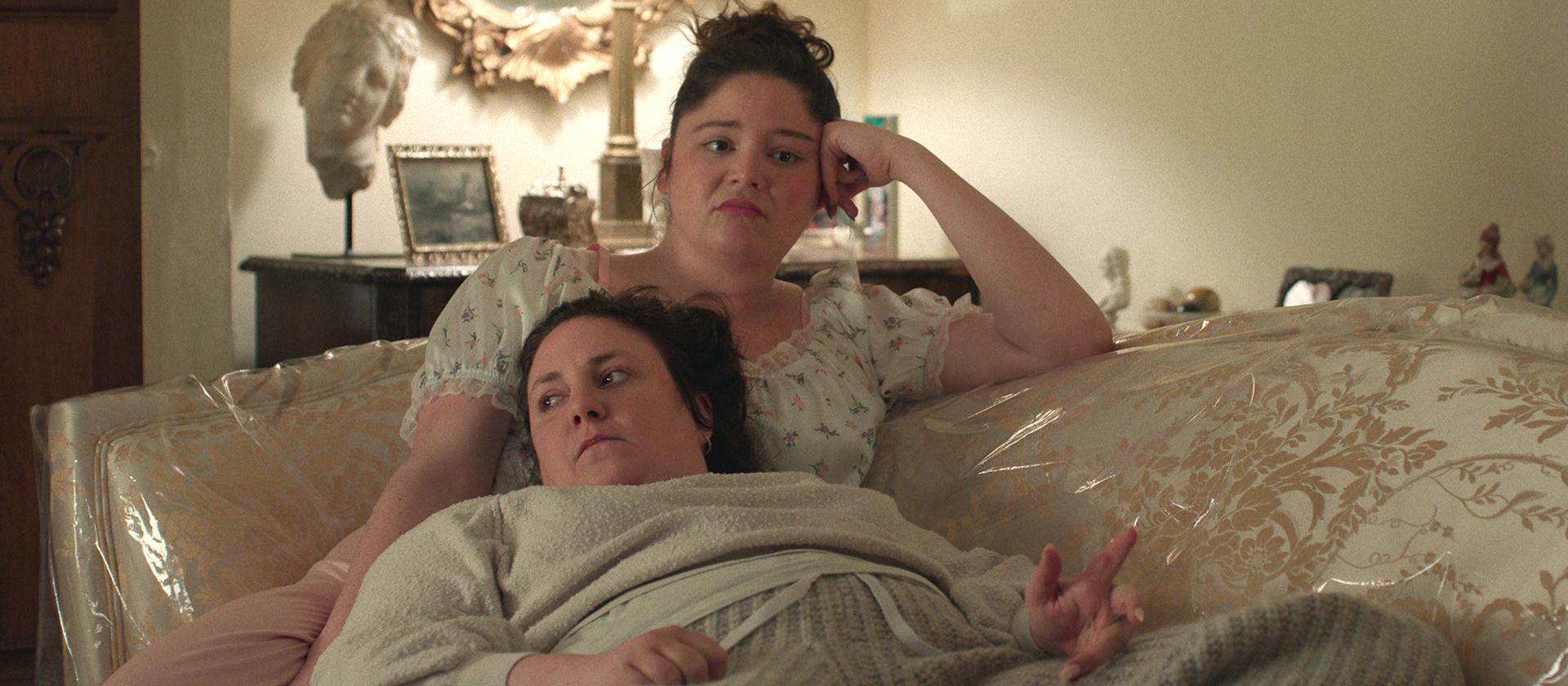
Jessica was dumped by her belittler of a boyfriend Zev (Michael Zegen) for a knitting influencer (Emily Ratajkowski). In retaliation, she broke into their home to vent her rage and then fled the scene of the crime on the advice of her boss and older sister’s ex-husband (Girls alum Andrew Rannells, with Dunham playing the sister) by heading to London for work. She’s here, in her own words, to heal those wounds and find for herself a Mr. Darcy or a Mr. Rochester.
Only, those are two entirely different breeds of men, and it’s her ill-informed infatuation with the very concept of a British dreamboat that will potentially doom her relationship with musician Felix (Will Sharpe, beautifully grounded). Yes, he’s initially standoffish, but in fact deeply generous like Mr. Darcy.
Related reading:
* The Bear reaches a profound understanding
* Italy now has its own The Crown
* The best shows of 2025 so far
What Jessica is less prepared for is that he’s also, like Mr. Rochester, hauling around some serious baggage—not as extreme as a wife in the attic but, still, emotionally scarring enough to impact his ability to love honestly, as hard as he might try. Jessica, meanwhile, decides to watch one of the saddest movies ever made, Atonement, on the plane ride over, so she might, in fact, secretly be a sociopath.
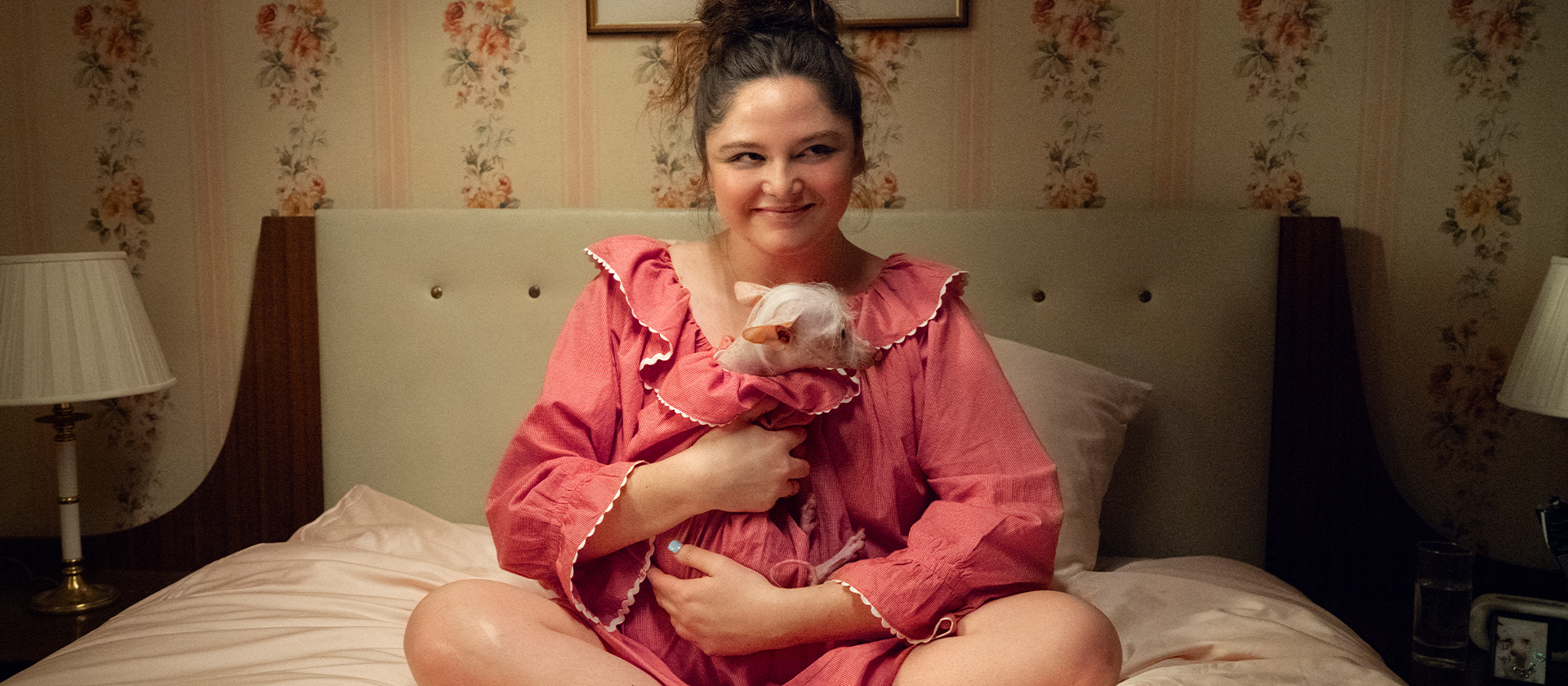
There are some very lovely moments in all that unpacking, thanks partially to how likeable Stalter is as a definitively Horvathian heroine who wears her discomforts and her joy as boldly as she does her Anna Karina-esque sailor dresses and bows. She tells Naomi Watts’s Ann, the affable coked-up wife of Jessica’s new boss (Richard E Grant, of course), that her “pisshole is burning fire” within minutes of being introduced. But we also get to see how that constant self-romanticisation holds up when she’s faced with someone like Felix, whose problems can’t be discoursed away, or soothed, as Jessica tends to do, by watching reality shows. “You have to watch people whose lives are worse than yours to relax,” she argues.
Yet, Too Much is a romcom first, even if the love here is thornier than the typical Richard Curtis type. It adheres to the tropes, even when it’s pretending not to. And that makes it feel more timeless, in a way that might actually be to its detriment if you’re approaching it in the same way you’d approach Girls. It’s more interested in building a heroine rather than taking her apart in the way Dunham did with Hannah. It’s less raw, less confrontational, and far more affectionate and forgiving when it comes to Jessica’s narcissism.
That’s a noticeable trait in much of Dunham’s post-Girls work. Her last film, 2022’s Catherine Called Birdy was an entirely pleasant, feather-light piece of medieval girl power. Dunham’s been a controversial figure for much of her career, sometimes for justified reasons and sometimes for bullshit misogynistic ones, and her most recent interviews suggest we’re looking at an artist trying to be more cautious and conscientious in their language. But that hasn’t resulted in the kind of honest self-evisceration in Too Much that you’d maybe hope for from her.
That said, demanding that Too Much be the new Girls, ultimately, I think, misunderstands the nature of generational work. That’s more of a lightning in a bottle situation, where Dunham was in the right place at the right time with the right life experiences and the right observations. It’s a very hard thing to replicate. And as Hannah famously said (ironically in the show but true, in a way, when applied here), Dunham isn’t the voice of her generation, but *a* voice of her generation. There’ll be somebody else who can speak when the time is right.







